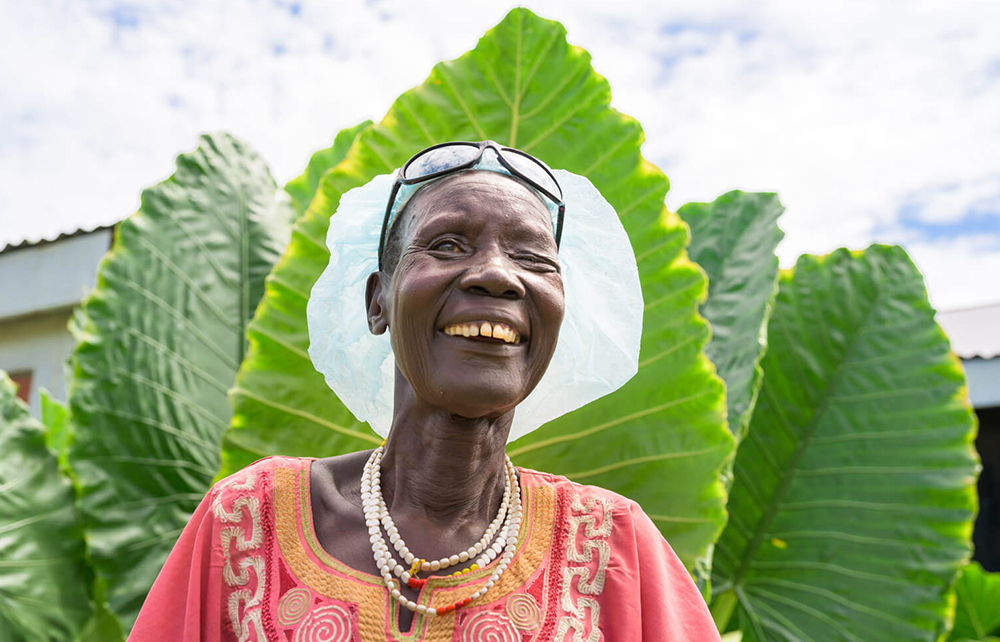Kenya
Tonj is a war-battered settlement on a river that eventually feeds into the White Nile, in South Sudan. When they are not feuding over livestock, Dinkas from remote cattle camps, dressed in garish jalabiyas, saunter down the dusty main street. For months at a time, tropical deluges turn the surrounding mud hamlets into islands, clogged with papyrus, buzzing with insects and isolated from the world. Last year, Dr Ben Roberts, an eye doctor from Alabama who works as a medical missionary in Africa, arrived in Tonj to perform cataract operations on hundreds of local people, restoring sight to those who live in darkness. News of Dr Roberts’s miracles reached a blind elderly woman named Madhieu, many days walk away. With her daughter leading her by the hand, Madhieu set off for Tonj on foot. They trekked night and day through thick jungle and when at last they arrived they discovered they were too late. The doctor had already moved on. The elderly woman asked if he would ever come back and she was told yes, after about a year.
Madhieu did not have any clear idea of when the eye team might return, but she was determined not to miss the chance of being able to see again. Instead of having her daughter lead her through the jungle all the way back to her village, she decided to wait in Tonj. Here she built a hut and then sat down to wait. Women in Africa are expected to fetch water, carry firewood, tend the fields and do all the cooking, so in the warzone of South Sudan Madhieu’s blindness must have made life difficult. I’ve never met this woman myself, but in the photos I’ve seen of her she has the distinctive figure of a Dinka, like a Giacometti sculpture, and even in old age she looks very tough. She had to be as she waited, with the seasons passing.
Year by year, God becomes ever more popular in Africa
Meanwhile, Dr Roberts had returned to his base at Tenwek Hospital in western Kenya. Set in a misty landscape of smallholder tea gardens and milk cows, American evangelical doctors at Tenwek (‘We Treat – Jesus Heals’) have tended to multitudes of patients and trained thousands of local doctors and nurses since the institution was founded in 1937. The eye unit, which tackles cataracts, glaucoma and retina transplants, is just one among Tenwek’s fantastic medical services.
Each year an evangelical charity called Samaritan’s Purse, founded by Billy Graham’s son Franklin, invites the doctors from Tenwek on tours of South Sudan. Franklin famously once promised to rebuild every church in the country destroyed during the long conflict with Khartoum’s Arabs. I think he’s rebuilt more than 500 so far. The group – a billion-dollar operation that currently does a lot in Ukraine – also distributes relief and supports medical operations across South Sudan, now beset by another conflict between ethnic factions.
Some people who are not from Africa like to say they are suspicious of missionaries, especially the Catholics and American evangelicals, but the important thing is that these people are welcomed by the Africans themselves. God is alive and very well in Africa. Year by year, He becomes ever more popular. And in my experience across the continent, some of the most impressive people I have encountered have been missionaries – especially doctors such as Ben Roberts and the people at Tenwek.
In October this year, Tenwek launched another expedition to South Sudan. Dr Roberts was busy elsewhere, but his team of Kenyan eye doctors flew up to South Sudan and bumped along the dangerous road back to Tonj. Almost at the head of the queue was the blind lady Madhieu, who had never left the place as she waited patiently, never giving up hope, for the eye team to finally return. Now that they were here once more, she and the other patients, including another woman in her nineties, were prepared for the cataract operation. In the photographs I’ve seen, all the women are in blue bouffant surgical hair nets. Following her operation on one eye – presumably the second eye followed after a few days – Madhieu wore an eye patch. When this was finally taken off, she was able to see. The missionaries tell how she danced and in prayer gave thanks to Jesus. One story I’ve heard is that she knelt before a cross she had only been able to feel in her hands before the operation. I’m a godless fellow myself, but I reckon there’s nothing wrong with praying, especially if you were blind and can now see.







Comments